News
Inferior fuel: FG demands Dangote refinery’s diesel report, orders new test

The Federal Government, through the Nigerian Midstream and Downstream Petroleum Regulatory Authority, is expecting fresh reports to confirm the real sulphur content of the diesel produced by the Dangote refinery as the company debunked claims of inferior fuel production.
The NMDPRA spokesman, George Ene-Ita, in an interview with The PUNCH on Sunday, said the agency had done its job and would not engage in a media fight with anybody over the claims made by the NMDPRA Chief Executive, Farouk Ahmed, that Dangote’s diesel has more sulphur content than imported one.
According to Ene-Ita, the authority has about 15 engineers and scientists embedded in the Dangote refinery, whose fresh report about the refinery’s sulphur content will be out on Monday (today).
The PUNCH reported Ahmed as alleging that the diesel from the Dangote refinery contains high sulphur content.
Reacting to Dangote’s allegations that the NMDPRA was giving licences to some traders to import dirty fuel into Nigeria last week, Ahmed argued that it was the Dangote fuel that had a larger content of sulphur.
He also said the refinery, which has been selling diesel and aviation fuel in Nigeria for months, had yet to be licensed, stating that it was still at the pre-commissioning stage.
“The claim by some media houses that there were steps to scuttle the Dangote refinery is not so. The Dangote refinery is still in the pre-commissioning stage. It has not been licensed yet; we haven’t licensed them yet. They are still in the pre-commissioning. I think they have about 45 per cent completion,” Ahmed declared.
The NMDPRA boss warned that Nigeria could not rely heavily on the Dangote refinery for its fuel supply.
According to him, the refinery had requested the regulator to stop giving import licences to other marketers so as to be the only fuel supplier in Nigeria.
“We cannot rely heavily on one refinery to feed the nation, because Dangote is requesting that we should suspend or stop importation of all petroleum products, especially AGO and direct all marketers to the refinery, that is not good for the nation in terms of energy security. And that is not good for the market, because of monopoly,” he stressed.
Speaking about quality, he said, “So, in terms of quality, currently the AGO quality in terms of sulphur is the lowest as far as the West African requirement of 50 ppm is concerned.
“Dangote refinery and some modular refineries, like Waltersmith refinery and Aradel refinery, they are producing between 650 to 1,200ppm. So, in terms of quality, their product is much more inferior to the imported quality,” he alleged.
Reacting during a tour of the refinery by members of the House of Representatives led by the Speaker, Hon. Tajudeen Abbas, over the weekend, Dangote asserted that products refined at the world’s largest single train refinery are of superior quality compared to the imported fuel.
The speaker and other members had observed the testing of Automotive Gas Oil from two petrol stations alongside the same taken from the Dangote refinery.
The diesel samples were procured from two well-known filling stations near Eleko junction along the Lekki-Epe Expressway, Lagos, by the lawmakers.
The Chairman of the House Committee on Downstream, Ikeagwunon Ugochinyere, and Chairman of the House Committee on Midstream, Okojie Odianosen, oversaw the collection of samples from the Mild Hydro Cracking unit of the Dangote refinery for testing of all the samples.
The Dangote laboratory tests were said to have revealed that Dangote’s diesel had a sulphur content of 87.6 ppm while the other two samples showed sulphur levels exceeding 1,800 ppm and 2,000 ppm respectively.
Dangote faults NMDPRA
Speaking, Dangote emphasised that the findings had debunked claims made by Ahmed that imported diesel surpasses domestically refined products.
The Africa’s richest man openly challenged the regulator to compare the quality of refined products from his refinery with those imported, advocating for an impartial assessment to determine what best serves the interests of Nigerians.
“We produce the best diesel in Nigeria. It is disheartening that instead of safeguarding the market, the regulator is undermining it. Our doors are open for the regulator to conduct tests on our products anytime; transparency is paramount to us. It would be beneficial for the regulator to showcase its laboratory to the world so Nigerians can compare. Our interest is Nigeria first because if Nigeria doesn’t grow, we have limited capacity for growth.
Dangote argued that the imported products being encouraged by Ahmed have failed in tests, saying most of the importers have fake certificates because the owners of the laboratories have been told what to write.
On the allegation of monopoly, Dangote said, “If you are saying how can Dangote alone supply the market, are you saying the N4bn that the NNPC spent now on the activation of their refineries in Kaduna, Warri and Port Harcourt is down the drain? Are the refineries not going to work? They have announced a date. If they are there, we cannot be a monopoly because we are not the only one; actually, they are more powerful than us. So, there is no way we can be a monopoly, it is not done.”
Speaking about the sulphur content, he added, “I am surprised for somebody to come and mention that we have a bad quality; we and other modular refineries. I can’t talk of the quality of the modular refineries, but our own today is 87ppm and by Monday, we will be at 50ppm, by the beginning of August, we will be at 10ppm.
“All the test certificates people are busy flaunting around today are fake. Where are the laboratories? We have the laboratory.
“The demarketing of a company by a regulator that he is supposed to protect is very very unfortunate. We produce the best diesel in Nigeria and if the regulator wants, he can come any time to conduct a test. I would like the media to show our lab and I would like the regulator himself to show us which lab is he using. As a regulator, he is supposed to have a lab. If the regulator doesn’t have a lab, then we have an issue because he cannot rely on somebody. He is supposed to check us.”
However, while commenting on the claim that the Dangote’s diesel has 87ppm sulphur content, the NMDPRA spokesman posited that a lot might have changed within a space of five days.
“We are not fighting anybody. Dangote refinery is the same as an indigenous local refinery. We are regulators, we don’t fight in the media. We have done our job, and that is it.
“You know we are dealing with engineering and time, and when we deal with engineering and time, it means that whatever claims put forward can be put to test and verified or debunked. If you recall, the ACE made that pronouncement on the sideline of an interaction on Wednesday or so. Between that time and now, it’s been like five days, a lot can change. So, 650ppm or 500 can come down to whatever.
“What I am saying is that I can’t give you any verifiable result for now, being a Sunday evening, until perhaps tomorrow when we will be in a position to review our technical report that must have been submitted by our engineers who are embedded in that plant. What normally comes to us are weekly reports. These particular tasks are done across the week from Monday to Sunday; even now, operations are going on and our engineers are there. So, I can’t speak to the claims made by that refinery now,” Ene-Ita explained.
On the insinuation that ACE may be relying on a report from other laboratories to describe his fuel as inferior, he replied, “Of course we have laboratories all over the country. Does Dangote work in NMDPRA? He doesn’t work in NMDPRA.”
The NMDPRA official fumed over the allegation that the regulator was demarketing a company it should protect, wondering if Dangote wants the agency to bend the rules in his favour.
“Why should we protect any company? We are regulators, operations are going don’t protect anybody; we regulate operators. If he says protect, it means we are shielding. It means that we should bend the rules. We don’t do that, we regulate every company.
“And we don’t demarket, what does he mean? You only demarket your competitors to gain an advantage. We are not competing with an operator. The word, ‘demarketing’, is only used when two competing brands are fighting. We are not an operator; we are a regulator. How can we demarket? Please, I take exception to that, on behalf of my organisation. We are not demarketing anybody. We are regulating every local refinery, including NNPC,” he clarified.
When told perhaps the business mogul means the regulator should be boosting local refining capacity, he retorted, “That’s what we are doing. As we speak, there are over 15 engineers and scientists of the NMDPRA working with them for the last how many months. That’s how we get our reports. We have engineers and scientists there, who go there. That’s how we get them. That is why I keep on saying we don’t want to personalise this matter. We are working to see that the local refining capacity is booted to a point where we are self-sufficient in producing our fuel here.”
Dangote imports crude
Meanwhile, the Dangote refinery is in talks with Libya to secure crude for the 650,000 barrels per day plant and will also seek Angolan oil, a senior executive, Devakumar Edwin, told Reuters, as the refinery seeks to overcome problems with domestic crude supplies.
Since Dangote began operations in January, it has been unable to get adequate crude supplies in Nigeria, which, although Africa’s biggest oil producer, is struggling with theft, pipeline vandalism and low investment.
Dangote has resorted to importing crude from as far as Brazil and the United States.
“We are talking to Libya about importing crude,” Edwin told Reuters late on Saturday. “We will talk to Angola as well and some other countries in Africa.”
He declined to give details about the talks but said international traders and oil companies were among the biggest buyers of Dangote’s gasoil, much of which was being exported.
“The biggest off-takers are the two big traders Trafigura and Vitol and BP and, to some extent, even TotalEnergies. But all of them are saying they are taking it to offshore,” Edwin said.
Traders and shipping data have shown that Dangote is increasing gasoil exports to West Africa, taking market share from European refiners.
Dangote has said the refinery will begin the sale of Premium Motor Spirit in August, with a plan to stop the importation of refined fuel into Nigeria.
Marketers worried
However, Nigerians and marketers have been expressing concern over the ongoing controversies, especially after the regulator said the country would continue to import refined petroleum products into Nigeria.
The PUNCH recalls that while accusing the IOCs of plans to frustrate the refinery, the Vice President of Oil and Gas at Dangote Industries Limited, Edwin also accused the NMDPRA of granting licences indiscriminately to marketers to import dirty refined products into the country.
According to Edwin, the Federal Government issued 25 licences for the construction of refineries in Nigeria, but only the Dangote Group delivered on its promise.
The vice president noted that more than 3.5 billion litres of diesel and aviation fuel had been exported to Europe by the refinery in the past few months. The exported fuel, it was said, represented about 90 per cent of its production.
“The Federal Government issued 25 licences to build refineries and we are the only one that delivered on our promise. In effect, we deserve every support from the government. It is good to note that from the start of production, more than 3.5 billion litres, which represents 90 per cent of our production, have been exported. We are calling on the Federal Government and regulators to give us the necessary support to create jobs and prosperity for the nation,” Edwin stated.
It was alleged that even though Dangote was producing and bringing diesel into the market, complying with the regulations of the Economic Community of West African States, “licences are being issued, in large quantities, to traders who are buying the extremely high sulphur diesel from Russia and dumping it in the Nigerian market.”
Edwin lamented, “The decision of the Nigerian Midstream and Downstream Petroleum Regulatory Authority in granting licenses indiscriminately for the importation of dirty diesel and aviation fuel has made the Dangote refinery expand into foreign markets. The refinery has recently exported diesel and aviation fuel to Europe and other parts of the world. The same industry players fought us for crashing the price of diesel and aviation fuel, but our aim, as I have said earlier, is to grow our economy.”
He noted that because the refinery meets the international standard as well as complies with stringent guidelines and regulations to protect the local environment, it has been able to export its products to Europe and other parts of the world.
“It is regrettable that in Nigeria, import licences are granted despite knowing that we can produce nearly double the amount of products needed in Nigeria and even export the surplus. Since January 2021, ECOWAS regulations have prohibited the import of highly contaminated diesel into the region,” Edwin stated.
Meanwhile, some Nigerians online have called on President Bola Tinubu to relieve the NMDPRA chief executive of his job for saying the fuels produced by local refineries are inferior to imported ones.
Also, the House of Representatives said the allegations would be investigated.
Credit: PUNCH
News
Mbah mourns ,says Christian Chukwu was a ‘football icon’
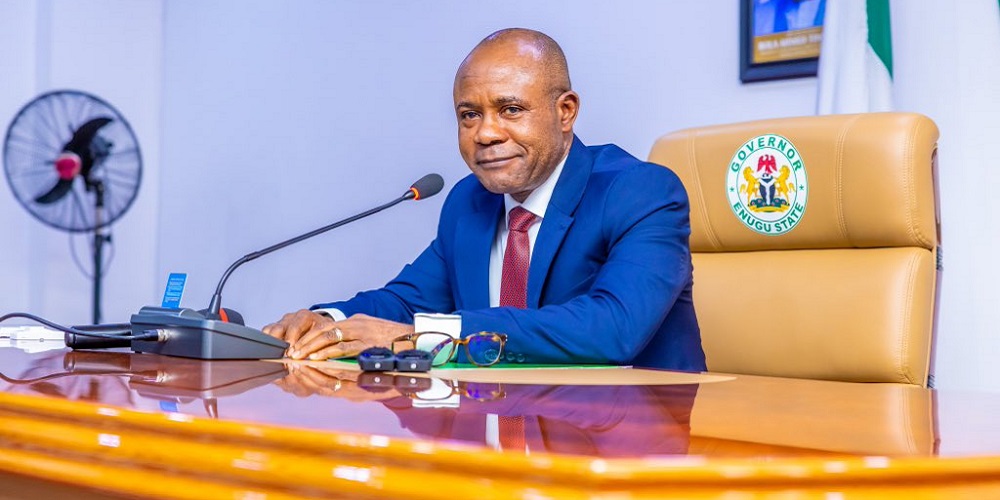
By Kayode Sanni-Arewa
Enugu Governor Peter Mbah has expressed deep grief over the passing away of former Super Eagles skipper and coach, Christian Chukwu, describing him as a football icon, titan, and phenomenon.
Reacting to the development on Saturday Mbah said: “I received with a deep sense of loss the passing away of Chairman Christian Chukwu. It is a personal loss to us as Ndi Enugu, his home state, and indeed to Nigeria as a nation and Africa as a continent.
“Christian Chukwu was a national icon, a football titan, field marshal, and phenomenon. His exploits as a footballer united the country across ethnic divides and creed.
He was patriotism personified, serving the nation and Africa unreservedly both as a player and coach of the highly successful Rangers International Football Club of Enugu and Super Eagles of Nigeria, which he captained to victory as Green Eagles at the 1980 Africa Cup of Nations, AFCON. He also coached the Harambee Stars, Kenya’s senior male national team, among others.
“Chairman, as he was fondly called, gave his all not only to the nation but to the rest of Africa. He wrote his name in gold in the annals of the history of Nigerian and African football.
Our dear legend has gone the way of all mortals, but the fond memories and the pride he gave Ndi Igbo and Nigeria as a whole will be cherished forever.
“My heart goes out to his family, Ndi Enugu, the Nigerian sports community and the entire nation over this irreplaceable loss. May the good Lord grant his soul eternal repose.”
News
Just in: Boko Haram IED Blast Kills Seven Along Maiduguri-Damboa Road
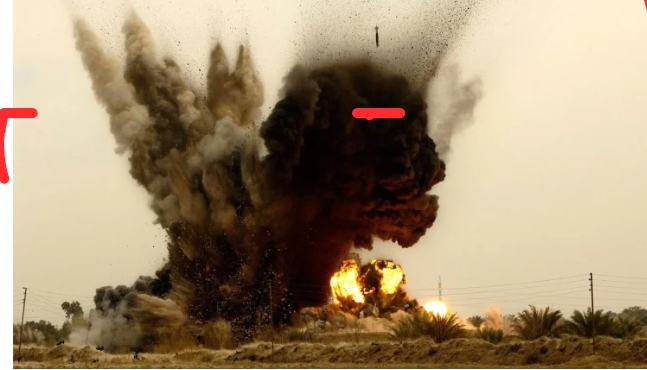
By Kayode Sanni-Arewa
No fewer than seven people lost their lives on Saturday following the detonation of an Improvised Explosive Device (IED) planted by Boko Haram terrorists in Borno State.
The deadly incident occurred along the Maiduguri-Damboa Road, a notorious route that cuts through the Sambisa Forest—an area long plagued by insurgent activities.
The victims were part of a convoy of vehicles being escorted by the military from Damboa to Maiduguri.
According to eyewitness accounts and local sources, the explosion struck as the convoy—organized to provide safe passage through the volatile region—was underway. Several other passengers sustained varying degrees of injuries and were rushed to a hospital in Maiduguri for urgent treatment.
The Maiduguri-Damboa Road serves as a vital link between the state capital and several local government areas in southern Borno, including Chibok and Gwoza.
For years, the route remained closed to civilian traffic due to persistent terrorist threats. However, under the administration of Governor Babagana Zulum, the road was reopened, with military escorts deployed to accompany travelers twice weekly after clearing the area for explosives.
Saturday’s attack raises fresh concerns about the safety of the corridor, despite consistent military presence. The blast also comes just days after Governor Zulum publicly raised alarm over renewed Boko Haram activity in the state, highlighting the persistent threat the group poses to peace and development in the region.
Authorities are yet to release an official statement on the incident, while investigations and security operations in the area continue.
News
Insecurity: Criminals Cart Away NSA Ribadu’s Office Hilux During Juma’at Prayer In Abuja
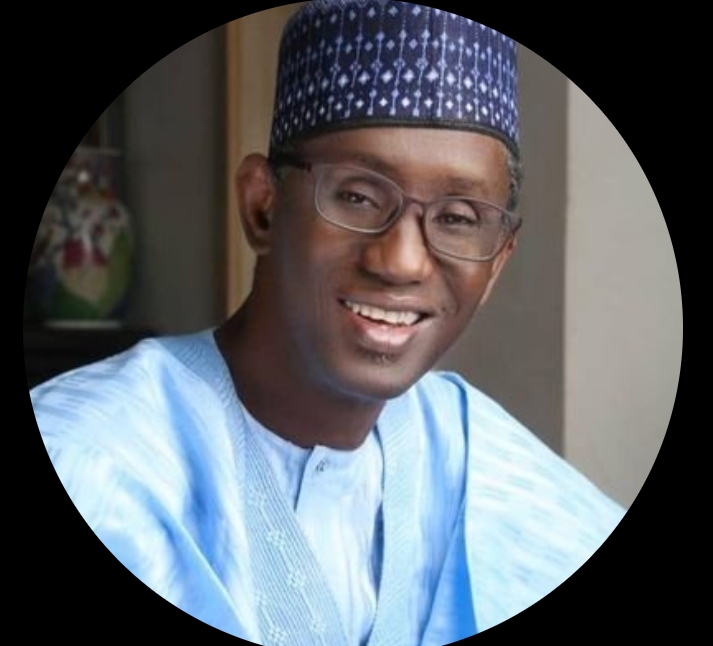
By Kayode Sanni-Arewa
The Federal Capital Territory (FCT) Police Command has initiated a search following the theft of a black Toyota Hilux vehicle belonging to the Office of the National Security Adviser (ONSA), Nuhu Ribadu, which was stolen during Friday’s Juma’at prayers in Abuja.
It was gathered that the vehicle was parked around 1:05pm opposite the Abuja Municipal Area Council (AMAC) complex in Area 10, while the official attended prayers at a nearby mosque.
Security source, Zagazola Makama, disclosed the incident via his X (formerly Twitter) handle, revealing that the ONSA official returned from the mosque only to find the vehicle missing.
According to him, a sources said the theft was immediately reported to the Garki Police Division at approximately 2:00 p.m., leading to a swift response by law enforcement.
Meanwhile, the FCT Police Command promptly activated a stop-and-search operation at various checkpoints and across all entry and exit points in the capital city.
Police authorities confirmed that investigations are ongoing and all efforts are being made to apprehend the culprits and recover the vehicle.
The Command said it had intensified efforts to track down the fleeing suspects and recover the stolen Hilux.
-
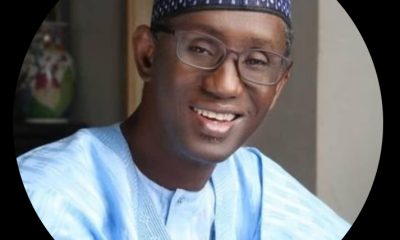
 News5 hours ago
News5 hours agoInsecurity: Criminals Cart Away NSA Ribadu’s Office Hilux During Juma’at Prayer In Abuja
-
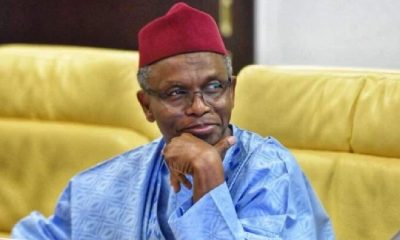
 News14 hours ago
News14 hours agoWe only had lunch with Buhari not 2027 politics -El-Rufai
-
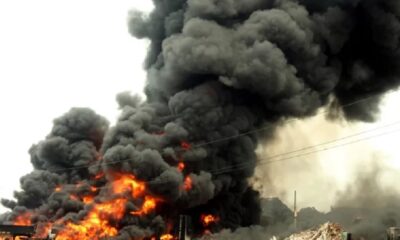
 News14 hours ago
News14 hours agoSad! Explosion rocks Lagos
-

 News14 hours ago
News14 hours agoParts of Abuja, Niger in total darkness -AEDC confirms
-
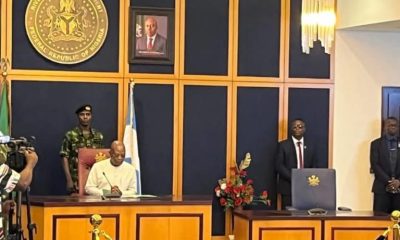
 News13 hours ago
News13 hours agoIbas gives reasons why Sole Administrators were appointed for Rivers councils
-
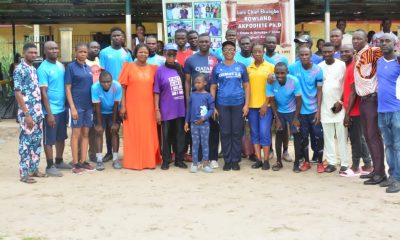
 News8 hours ago
News8 hours agoOERAF Rounds Up Late Chief Ekuogbe Rowland Akpodiete’s remembrance with Novelty Match
-

 News12 hours ago
News12 hours agoUS embassy announces new requirements for visa interviews for Nigerian applicants
-
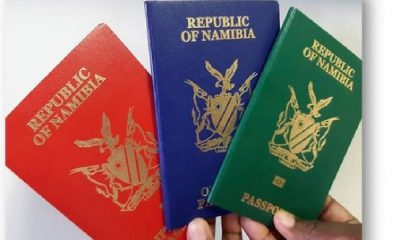
 News11 hours ago
News11 hours agoFive countries with easy work visas in 2025






